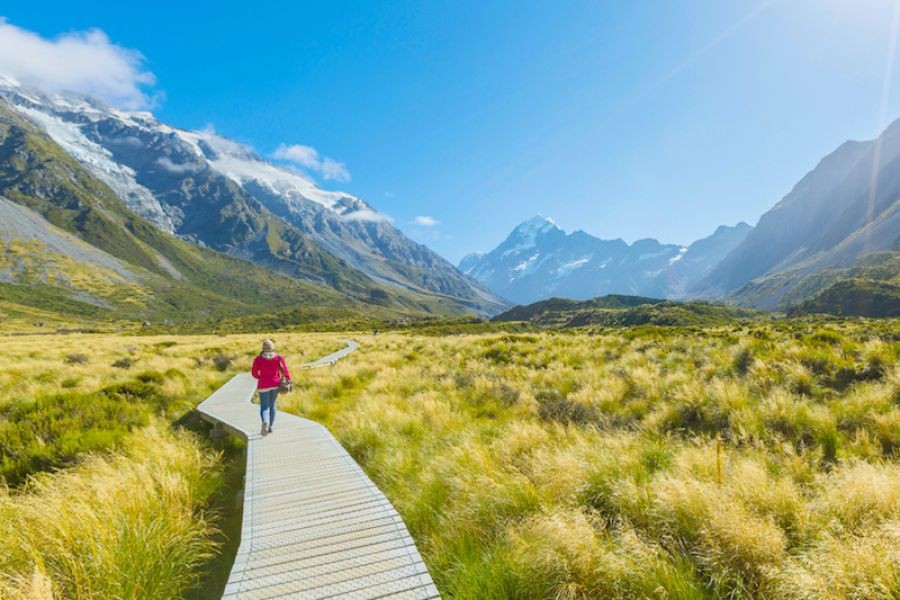Did you know that New Zealand's adventure tourism industry is poised for unprecedented growth, potentially surpassing pre-pandemic levels by 2025? As the world emerges from the pandemic, New Zealand stands at the forefront of an adventure tourism renaissance, driven by its unique landscapes, diverse activities, and a strong emphasis on sustainability. This article delves into the evolving trends of adventure tourism in New Zealand, providing critical insights for property development specialists looking to capitalize on this burgeoning sector.
adventure tourism: A Catalyst for Economic Growth
adventure tourism has always been integral to New Zealand's economy, drawing millions of tourists each year. According to Stats NZ, tourism contributed 5.8% to the national GDP in 2019, with adventure tourism playing a significant role. In the post-pandemic era, this sector is expected to rebound robustly. Key drivers include increased demand for outdoor activities, a shift towards sustainable travel, and a growing global interest in unique experiences.
Expert Insights: Shaping the Future of adventure tourism
Industry experts suggest that technology and sustainability will be pivotal in shaping the future of adventure tourism. The integration of AI and VR in tourism experiences is expected to enhance customer engagement, providing personalized and immersive experiences. Furthermore, sustainability remains at the forefront, with travelers increasingly opting for eco-friendly options. The New Zealand government has been actively promoting sustainable tourism practices, ensuring that the country's natural beauty remains preserved.
Case Study: Queenstown's Tourism Resurgence
Problem: Queenstown, renowned for its adventure tourism, faced a severe downturn during the pandemic, with a significant drop in international visitors.
Action: To address this, local businesses and the tourism board collaborated to diversify offerings, focusing on domestic tourism and digital marketing strategies. They emphasized sustainable practices and leveraged technology to enhance tourist experiences.
Result: Within a year, Queenstown witnessed a 30% increase in domestic tourism, with improved customer satisfaction rates. The shift to sustainable practices also led to a 25% reduction in operational costs for businesses.
Takeaway: This case study underscores the importance of adaptability and innovation in tourism. Property developers can benefit by investing in eco-friendly accommodations and tech-driven experiences to attract a new wave of tourists.
Pros and Cons of Emerging Trends
Pros:
- Increased Demand: adventure tourism is expected to grow by 20% annually, according to the Ministry of Business, Innovation, and Employment (MBIE).
- Sustainability Focus: Eco-friendly practices attract eco-conscious travelers, enhancing brand reputation.
- Technological Advancements: AI and VR offer personalized and engaging experiences, increasing customer satisfaction.
Cons:
- High Initial Investment: Implementing technology and sustainable practices requires significant capital.
- Regulatory Challenges: Compliance with environmental regulations can be complex and costly.
- Market Saturation: As more businesses enter the sector, competition increases, potentially driving down prices.
Debunking Common Myths
Myth: adventure tourism is only for thrill-seekers. Reality: Today's adventure tourism caters to a wide audience, including families and older adults, offering activities ranging from gentle hikes to extreme sports.
Myth: Sustainable tourism is too expensive to implement. Reality: While initial costs may be high, sustainable practices often lead to long-term savings and increased profitability.
Myth: Technology reduces the authenticity of travel experiences. Reality: Tech innovations can enhance experiences by providing deeper insights and personalized services, without detracting from authenticity.
Future Trends and Predictions
By 2026, New Zealand's adventure tourism sector is expected to embrace AI-driven personalization, with over 50% of operators offering customized itineraries (Source: Deloitte Tourism Report 2024). Furthermore, the integration of blockchain technology for secure and transparent transactions is predicted to become commonplace, enhancing trust and efficiency in bookings.
Conclusion and Call to Action
As New Zealand's adventure tourism sector evolves, property developers have a unique opportunity to capitalize on emerging trends. By investing in sustainable practices and leveraging technology, you can position your developments to attract the next generation of adventure tourists. What's your strategy for tapping into this booming market? Share your insights and join the conversation!
People Also Ask (FAQ)
- How does adventure tourism impact New Zealand's economy? adventure tourism significantly contributes to GDP and job creation, with Stats NZ highlighting a steady post-pandemic growth trajectory.
- What are the biggest misconceptions about adventure tourism? A common myth is it's only for thrill-seekers, but it caters to diverse audiences, offering a range of activities.
- What upcoming changes could affect adventure tourism in New Zealand? Policy shifts towards sustainability by 2026 are likely to influence the landscape, making eco-friendly practices essential.
Related Search Queries
- adventure tourism trends 2025
- New Zealand eco-tourism strategies
- AI in tourism industry
- sustainable travel New Zealand
- adventure tourism economic impact
- Post-pandemic tourism recovery
- VR in adventure tourism































